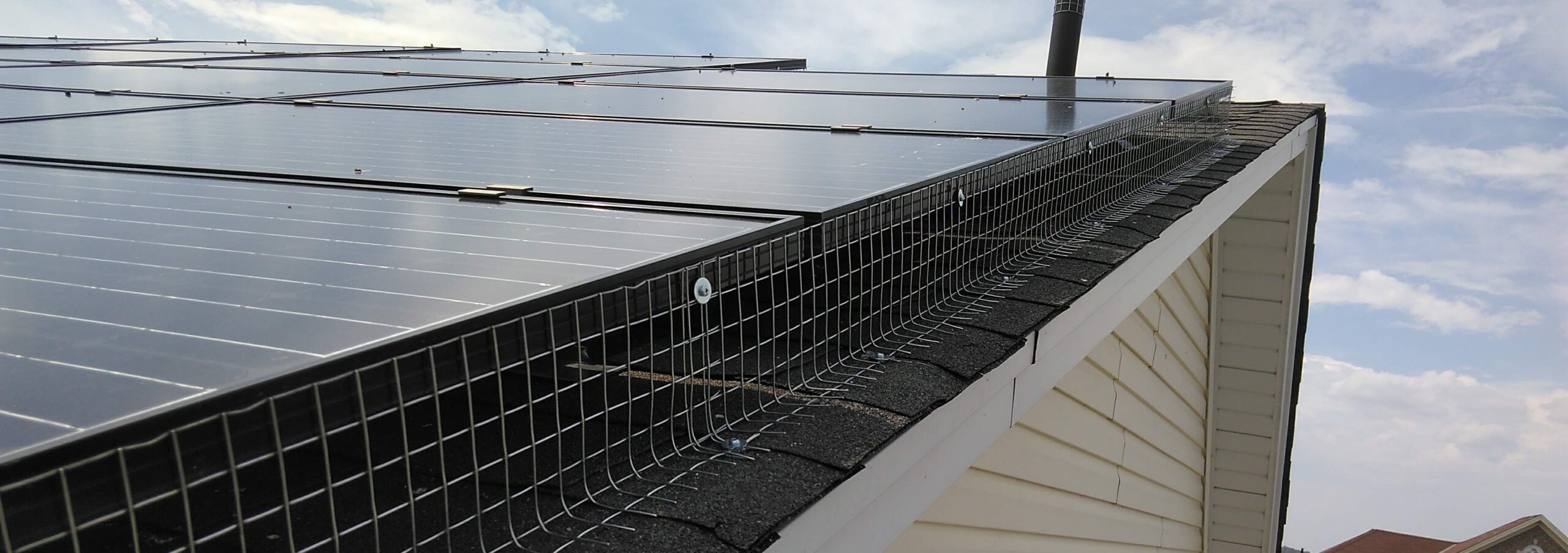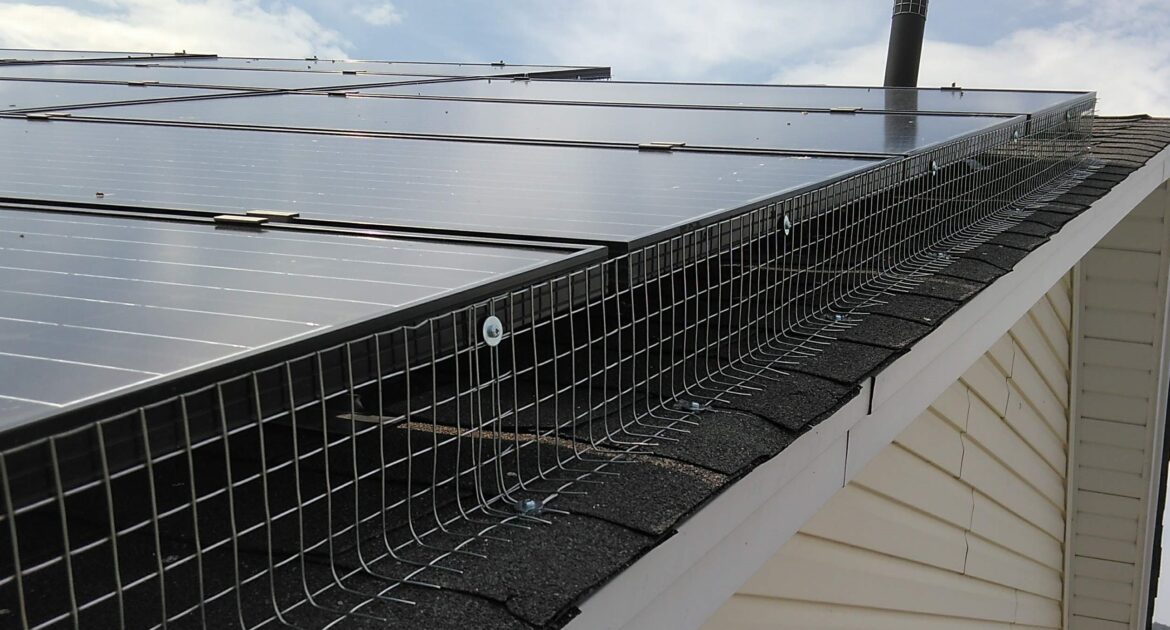You may think winter means a break from wildlife problems, but that’s not always true. Cold weather pushes many animals to look for warmth and shelter, and your home could become their target. One issue many families in Ottawa face is winter bird home invasions.
So, what birds could be trying to invade your home this winter, and how do you stop them? The answer is simple: they are looking for safety from the cold, and your attic or vents provide a perfect place.
The best way to keep your home safe is by knowing which birds cause problems, spotting the signs early, and using expert help to keep them out. At Skedaddle Humane Wildlife Control in Ottawa, we see these cases every year, and we know how to protect your home.
You deserve peace of mind, and that’s why this article will walk you through everything you need to know about winter bird home invasions. You’ll learn which species try to move indoors, why it’s risky, how to watch for warning signs, and some squirrel damage prevention tips you can apply to birds too.
Most of all, you’ll see how preventing birds in attics starts with being proactive and ends with getting professional help when needed.
Why Do Birds Invade Homes in Winter?
Winter is harsh in Canada’s capital. Food is harder to find, temperatures drop fast, and strong winds make it difficult for birds to stay warm. While many birds migrate south, some stay behind and adapt. When natural shelters like trees or shrubs aren’t enough, these birds look for man-made structures.
Your home is a great option for them. Warm attics, chimneys, vents, and even garages offer protection from snow and predators. Once inside, birds may build nests, leave droppings, and create a mess that’s tough to ignore. This is why migratory birds in homes this winter can quickly become a serious issue.
Common Birds That Cause Trouble in Ottawa
Not every bird will try to invade your home, but a few species are well known for it. Here are some of the main culprits:
Pigeons
Pigeons thrive in cities and suburbs because they adapt easily to human environments. They often nest on ledges, roofs, and balconies, but in winter, they move closer to warmth and shelter. Once they get inside, pigeons leave large amounts of droppings that can damage structures and spread germs. Their nests can also block drainage systems and create slippery, unsafe surfaces on walkways.
Starlings
Starlings are aggressive birds that travel in large flocks, which makes them tough to deal with. They often squeeze into vents and roof gaps, quickly turning a small issue into a big one. A single opening can attract dozens of them, leading to loud noise, messy droppings, and even damage to insulation. Their droppings are also acidic, which means they can stain or corrode building materials over time.
Sparrows
House sparrows may be small, but they are stubborn and determined. Their size makes it easy for them to sneak into tiny cracks or gaps around your roofline. Once inside, they can build nests in walls or attics, blocking vents and causing air flow problems. They are also known to bring in nesting materials like grass and feathers, which can be a fire hazard near electrical systems.
Crows
Crows are highly intelligent and curious, which means they often investigate homes and buildings when looking for food or shelter. In winter, they may pry at shingles, vents, or garbage bins to find resources. When crows gather in groups, the noise can be overwhelming, and their droppings build up quickly. They are also strong enough to cause damage by pulling apart loose materials.
Woodpeckers
Woodpeckers create problems in a different way. Instead of sneaking inside, they drill holes into siding, fascia boards, and even attic walls while searching for insects or making shelter. Over time, this pecking can weaken wooden structures and leave gaps that other birds or animals can use to enter. Their constant tapping can also become a frustrating sound for homeowners.
Each of these birds is part of why winter bird home invasions are such a problem in Ottawa. Knowing which ones to look out for is the first step in preventing birds in attics and other spaces.
How Winter Bird Home Invasions Affect You
You may think a bird or two won’t cause much harm, but the truth is very different. Birds in your home can create several big problems:
- Noise: Chirping, scratching, and fluttering can keep you awake at night.
- Droppings: Bird waste builds up quickly, and it carries bacteria that can affect your health.
- Property Damage: Birds peck at wood, tear insulation, and may block vents with nests.
- Fire Hazards: Nesting material in vents or near wires increases the risk of fire.
These risks show why preventing birds in attics and other hidden spots should be a priority before winter hits.
Signs That Birds Are Already Inside
You may not always see the birds, but the signs are often easy to spot if you pay attention. Watch for these red flags:
- Strange sounds like chirping, fluttering, or scratching from walls or ceilings.
- Droppings on window sills, attics, or near vents.
- Nesting materials such as twigs, grass, or feathers around entry points.
- Strong smells that don’t go away, caused by droppings or waste buildup.
If you notice even one of these, it could mean migratory birds in homes this winter are already making themselves comfortable.
Prevention Is Key
Stopping birds before they get inside is always easier than dealing with an invasion later. Here are some smart squirrel damage prevention tips that also work for birds:
- Seal gaps around rooflines and vents with proper covers.
- Keep vents clear of debris and check screens for tears.
- Trim back branches that give easy access to your roof.
- Make sure chimneys are capped to stop birds from flying in.
These simple steps, along with professional inspections, reduce the risk of winter bird home invasions.
Why Professional Wildlife Control Matters
You deserve to feel safe in your home all year long. When it comes to preventing birds in attics, professionals know how to identify entry points and secure them properly. At Skedaddle Humane Wildlife Control in Ottawa, we’ve helped countless families handle migratory birds in homes this winter with solutions that work long-term.
We don’t just remove the birds; we make sure your home is protected from future invasions. That’s the kind of peace of mind you can’t get from a quick fix.
Key Takeaways for Homeowners
You might not think about birds in winter, but ignoring them can cost you. Here’s what you should remember:
- Winter bird home invasions are common in Ottawa because of the harsh cold.
- Birds like pigeons, starlings, and sparrows are the most likely to sneak in.
- The damage includes noise, droppings, property issues, and even fire risks.
- Preventing birds in attics starts with spotting signs early and sealing entry points.
- Professionals like Skedaddle keep you safe while using humane, lasting solutions.
By acting early, you save money, protect your home, and avoid bigger headaches later.
Protect Your Ottawa Home Today
When it comes to winter bird home invasions, waiting is never the answer. The sooner you act, the easier it is to avoid damage and stress. If you’re worried about migratory birds in homes this winter or need help preventing birds in attics, we’re here to help.
At Skedaddle Humane Wildlife Control in Ottawa, we use proven methods to keep your home safe. Request an estimate today to learn more and take the first step toward protecting your family.




